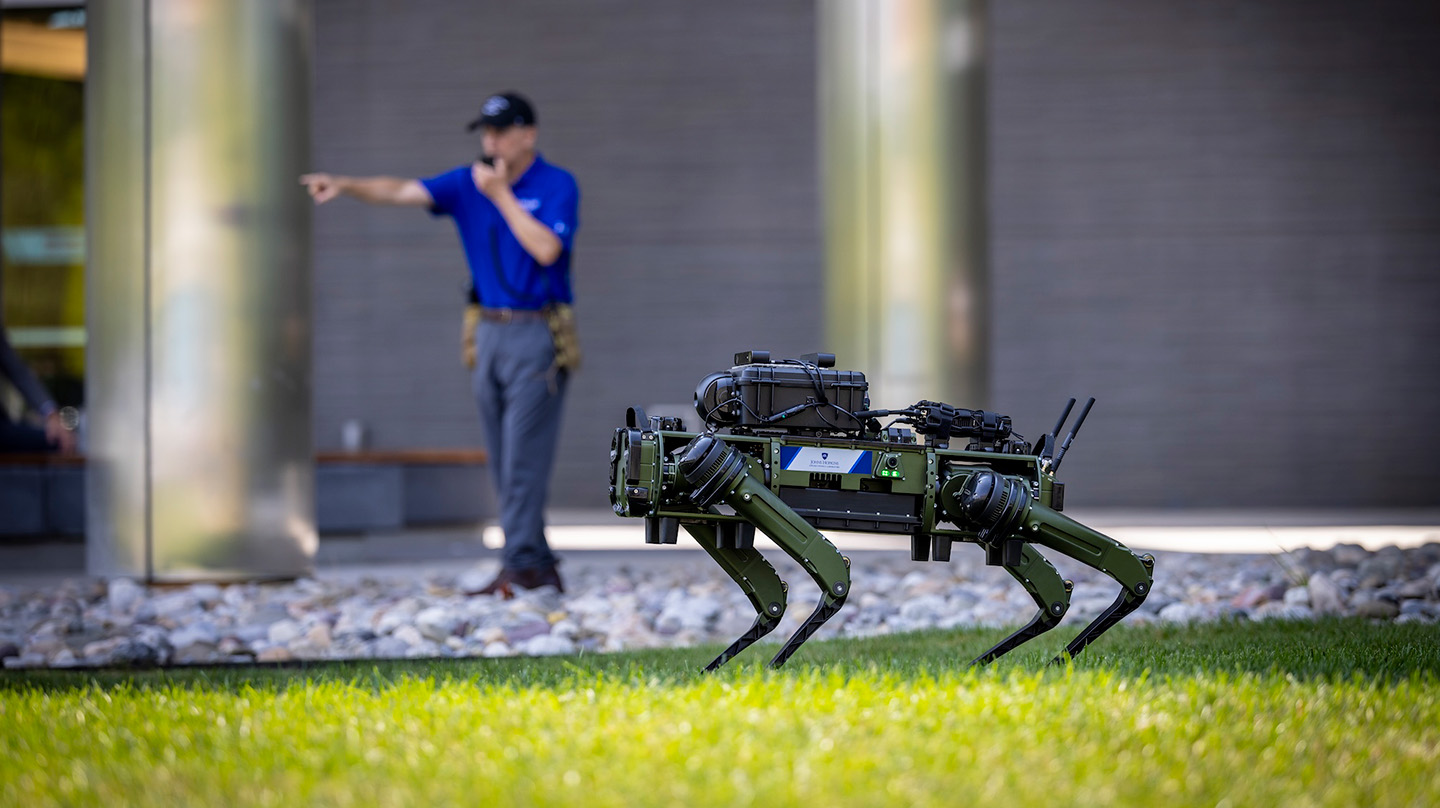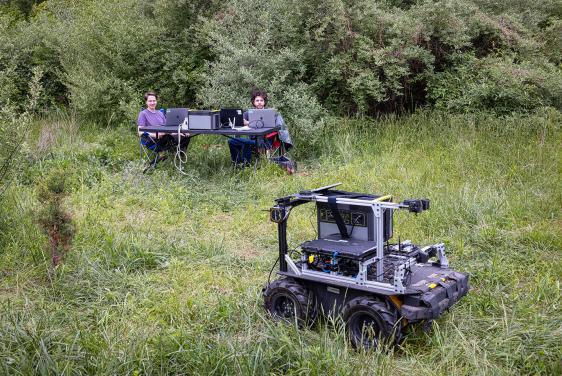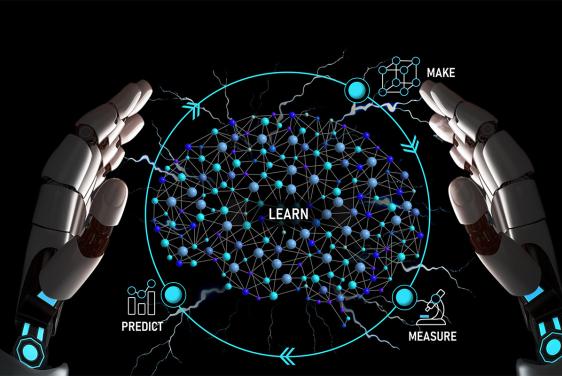Press Release
Johns Hopkins APL, Microsoft Collaborate to Advance Robotics and Materials Discovery Using AI
The Johns Hopkins Applied Physics Laboratory (APL) in Laurel, Maryland, and Microsoft, of Redmond, Washington, have agreed to collaborate to accelerate innovation in robotics and materials discovery using the latest advancements in artificial intelligence.
As AI rapidly evolves, APL and Microsoft are partnering to leverage their complementary expertise to advance AI innovation for two distinct mission-enabling research and development projects.
“This is all about accelerating our impact. By combining cutting-edge AI technologies with our expertise in mission-driven pioneering research, we will continue to drive transformative impact on our nation’s toughest challenges,” said Bart Paulhamus, chief of APL’s Intelligent Systems Center.
Under the agreement, APL will collaborate with Microsoft to explore autonomous robot teaming systems. With demonstrated expertise in developing robotic systems for complex environments, APL researchers will leverage Microsoft’s generative AI models to develop robotic teams that can operate independently — without regular human intervention — to plan, coordinate and execute tasks. Generative AI models play an important role in shortening the path from concept to scalable system, Paulhamus said.
Additionally, APL is testing MatterGen, a generative AI model for materials discovery from Microsoft Research. Through the MatterGen Research Access Program, APL will provide feedback that can help with refining and furthering the model’s capabilities. APL will investigate MatterGen’s ability to predict, make and measure novel oxide superconducting materials, and plans to leverage its expertise in closed-loop discovery of novel superconductors for this research. The framework APL developed for superconductors could also be applied to other materials challenges, such as the intentional discovery of new materials that meet specific performance needs, reduce reliance on rare earth elements, or provide alternatives to critical materials that are vulnerable to supply chain disruptions.
This strategic collaboration with Microsoft reflects APL’s commitment to advancing AI-driven solutions that push the boundaries of robotics and materials science for mission-critical applications.


